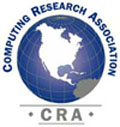

FOR IMMEDIATE RELEASE
Contact Information:
Cedar Pruitt
Berkman Center for Internet & Society
Harvard Law School
511 Pound Hall
1563 Massachusetts Avenue
Cambridge, MA 02138
Tel 617-495-0662
Fax 617-495-7641
Email Cedar Pruitt
http://cyber.law.harvard.edu
Cambridge, Massachusetts and Washington, D.C. (August 14, 2001) – BERKMAN CENTER FOR INTERNET & SOCIETY AND COMPUTING RESEARCH ASSOCIATION BACK RIGHT OF ACADEMIC FREEDOM IN MUSIC ENCRYPTION LAWSUIT. Calling the issue fundamental to free expression and academic research, the Berkman Center for Internet & Society at Harvard Law School represented University of Washington professor Edward Lazowska and the Computing Research Association (CRA), who on Monday submitted a declaration of support for Princeton University professor Edward Felten in a lawsuit asserting the right of computing researchers to reveal the findings of their academic work.
Professor Felten and a team of researchers were threatened against disclosing their analysis of a digital music protection scheme when they submitted their findings for publication at an information security conference in April. The scheme, called the Secure Digital Music Initiative (SDMI), was promoted with the claim that it could protect digital music against Napster-like copying. Berkman Center Fellow attorney Wendy Seltzer, who assisted Lazowska and the CRA, said, “There is clearly something wrong when professors are afraid to study information systems or to publish their research.”
The makers of SDMI organized a public contest, challenging researchers to remove the watermarks on a set of sample music clips. But after Felten and his team successfully cracked this protection scheme, the Recording Industry Association of America (RIAA) threatened suit under provisions of the Digital Millennium Copyright Act (DMCA), thus forcing the researchers to withdraw their paper on the topic. The RIAA was joined by SDMI and Verance, one of the companies selling watermarking technologies.
Since Congress passed the controversial DMCA in 1998 with the intent to expand copyright protection, it has been the target of protest by researchers who argue that it threatens freedom of academic study, in part by including stipulations that block the means to analyze encryption technologies.
In June, the Electronic Frontier Foundation and others took the initiative and filed a suit against the RIAA et al. on behalf of Felten and his team. Professor Lazowska’s declaration supports Felten and other researchers seeking a declaratory judgment from the U.S. District Court for the District of New Jersey that the DMCA violates First Amendment and other constitutional rights by preventing the team from presenting its computer science research to the world. The Berkman Center for Internet & Society supported the suit as an expression of a “core component of its mission,” according to Berkman Center executive director Eric Saltzman, “protecting openness and free expression on the Internet.”
“CRA’s members are deeply concerned that the DMCA will have a chilling effect on computing research,” said Lazowska. “Much research in computer systems is based upon analysis – the careful examination of existing systems and approaches in order to understand what works well and what works poorly. Analysis is no less important when the system being studied is used to protect copyrighted works. There is a long tradition of open research – including open research in computer security and information hiding – that has driven our field forward. This tradition is in jeopardy because of the DMCA.”
Seltzer said, “Computing research depends on experimentation and the free exchange of information, in the language of code, but the DMCA allows sellers of encryption systems to remove technologies from this discussion. Professor Lazowska demonstrates the chill the law casts on research and development and the imbalance created when researchers are forbidden from pointing out the flaws in technologies.”
Saltzman said, “In just a few pages, Ed Lazowska demonstrates convincingly that building legal fences around ideas – in computer science, as in other fields of research – is hazardous for progress.”
The Computing Research Association (www.cra.org) consists of approximately 200 North American academic departments of computer science and computer engineering; laboratories and centers in industry, government, and academia engaging in basic computing research; and affiliated professional societies. Lazowska, a member of the Board of Directors of the CRA and its Chair for the past four years, is the Bill & Melinda Gates Chair in Computer Science at the University of Washington.
The Berkman Center for Internet & Society (cyber.law.harvard.edu) at Harvard Law School is a non-profit entrepreneurial research program founded in 1997 to explore cyberspace, share in its study, and help pioneer its development. Today, the Berkman Center serves as the focal point for an international network of teaching and research faculty, students, cyberlaw practitioners, entrepreneurs and technologists engaged in innovative research projects designed to push the boundaries of current thought on law and the Internet.
Edward Lazowska’s declaration is available at:
<http://cyber.law.harvard.edu/felten/cra-declaration.html>
#
For more information, contact: Cedar Pruitt, Berkman Center for Internet
& Society, Harvard Law School, 511 Pound Hall, 1563 Massachusetts Avenue,
Cambridge, MA, 02138; Tel 617-495-0662; Fax 617-495-7641
Email Cedar Pruitt
http://cyber.law.harvard.edu